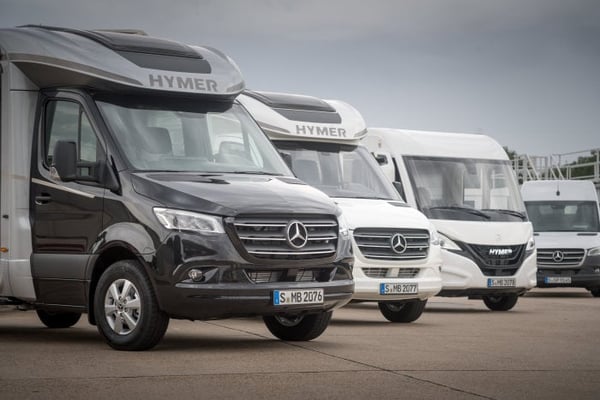Choosing a Motorhome
- Buy Motorhome to Rent (1)
- Buyers' Guide (48)
- Bürstner Motorhomes (8)
- Carado Motorhomes (3)
- Choosing a Motorhome (29)
- Choosing a Motorhome Dealer (6)
- Maintaining Motorhomes (7)
- Motorhome Industry (52)
- Motorhome Reviews (39)
- Motorhome Tips (27)
- Motorhome Travel (7)
- Motorhomes Costs (7)
- Owners' Stories (25)
- Technical Guides (34)
- Wilderness Motorhomes (37)
- Resources
- Blog

Finding a motorhome with the right balance of light, heating and ventilation is vital for your sense of wellbeing and relaxation. Although they’re invisible elements, they can have a considerable impact on your comfort and enjoyment.
Browse through our guide for some useful advice on these three important parts of purchasing an RV.

With such a huge array of campervans and motorhomes on the market, it’s hard to know where to start when you’re new to the game. Don’t be put off by unfamiliar terminology. After all, it’s not rocket science!
We will walk you through the main types of campervans and motorhomes available in New Zealand and the pros and cons of each so you can get one step closer to finding the one that will suit you and your lifestyle.

Before you sink your hard-earned money into the purchase of a new motorhome, you’ll want to make sure that you have a place to store it that’s both secure and minimises the impacts of the elements on it. A lockable garage or shed is ideal or alternatively, a secure carport on your own property.

Cost is usually top of the list for most people when they’re thinking about which motorhome is best suited to them, so it makes sense to ask the question, “Should I buy second-hand and save upfront, or pay more now and enjoy the benefits of an unused vehicle?”
“Price is a key consideration for buyers and this is usually what steers them toward either new or used,” says Wilderness Motorhomes (formerly SmartRV) marketing director Mary Hamilton. “But this does need to be balanced out by other key factors such as layout suitability, ongoing costs, and overall quality.”
“If you look at the market as a whole in New Zealand, there is a bigger market for used than for new. And of course, the market is experiencing unprecedented demand right now due to people not being able to travel internationally.”
Mary says that Wilderness Motorhomes, who sell both new and ex-rental motorhomes, do sell more new than used vehicles, but that’s more to do with supply. “With used sales, we sell only what’s coming off our rental fleet, but we could sell a lot more secondhand if we had them available.”

We can all picture it. A classic VW Kombi van parked up by an idyllic New Zealand beach, a long haired surfer untying his surfboard from the roof and heading into the water to catch the first waves of the day. That’s surely one of the most iconic Kiwiana images around. But while that VW camper has been a familiar sight for a long time, most other German motorhomes have only arrived on New Zealand shores in the last decade or so.
Locally manufactured motorhomes have dominated the New Zealand market since motorhoming became a thing after WWII.
| Contents |
While a limited range of motorhomes were imported from Australia and the UK in the late 1990s and early 2000s, it wasn’t until around 2010 that the growing popularity of touring by motorhome prompted Kiwis to look to European alternatives.
The German motorhome industry’s reputation for quality, reliability, efficiency and innovation is globally unparalleled – just as it is for its world leading car brands. The country’s leading R&D infrastructure, end-to-end value-chain integration and highly skilled workforce together create an undefeatable international automotive domain. That’s why German motorhomes have quickly become highly sought after in New Zealand.
In the article about the difference between German and New Zealand made motorhomes, we looked at some of the key factors that separate those made in Germany and those made locally. In this article, we will give you an overview of the German motorhome brands available at New Zealand dealerships and the parts of the market that they target.

